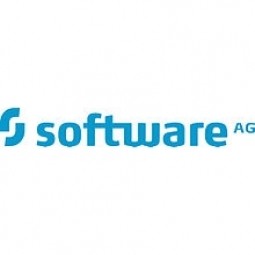下载PDF
Paci’s Knowledge Foundation Opens Path to Future
技术
- 平台即服务 (PaaS) - 应用开发平台
- 平台即服务 (PaaS) - 连接平台
适用功能
- 商业运营
用例
- 过程控制与优化
- 预测性维护
挑战
The Public Authority for Civil Information (PACI) in Kuwait had been relying on the stable architecture of Adabas and Natural for its core civic information systems and applications for almost three decades. However, personnel changes over time, along with inadequate standards and controls, led to a fragmentation of key business and technical knowledge. This was upheld by just a few seasoned agency employees. As a result, production changes were increasingly unpredictable and the risk was high that new decrees from the Kuwaiti government could not be implemented in time. The agency needed to regain control over its IT assets and business process information, expand knowledge throughout the organization and be able to plan for and make changes safely once again.
关于客户
The Public Authority for Civil Information (PACI) is responsible for registering, maintaining and providing civilian information for all residents of Kuwait. As the central civilian authority, the agency serves Kuwaiti citizens and foreigners as well as the varied government agencies and ministries of Kuwait. PACI employs close to 1,400 personnel and its strategic vision is driven by a commitment to service excellence. The agency is responsible for managing a wide breadth of civic information, such as personal identity, family and dependent information, building and residential data, credit history and resident status. Along with its key responsibilities to administer the data and handle related information requests from a broad audience, PACI must also be able to make changes and implement new Kuwaiti decrees regarding residency and other civilian matters in a timely manner.
解决方案
To regain control of its business process information and IT assets, PACI turned to Software AG. Working in cooperation with Software AG’s Global Consulting Services and supported by the ARIS platform, Natural Engineer and Software AG Consulting best practices, PACI's team of system and business analysts mapped more than 70 PACI Civil Registration System (CRS) service delivery processes. This first-ever, end-to-end documentation of PACI’s CRS processes was a significant project achievement. Not only had CRS process knowledge become fragmented across multiple business users, but a number of the CRS processes are quite complex in scope and involve as many as 150 agency employees to execute. In parallel with the business-side mapping, the PACI+ project team also mapped and documented the technical elements that support each of the CRS business processes, a total of almost 400 transactions and 1,400+ Natural objects.
运营影响
数量效益
相关案例.

Case Study
Remote Monitoring & Predictive Maintenance App for a Solar Energy System
The maintenance & tracking of various modules was an overhead for the customer due to the huge labor costs involved. Being an advanced solar solutions provider, they wanted to ensure early detection of issues and provide the best-in-class customer experience. Hence they wanted to automate the whole process.

Case Study
Predictive Maintenance for Industrial Chillers
For global leaders in the industrial chiller manufacturing, reliability of the entire production process is of the utmost importance. Chillers are refrigeration systems that produce ice water to provide cooling for a process or industrial application. One of those leaders sought a way to respond to asset performance issues, even before they occur. The intelligence to guarantee maximum reliability of cooling devices is embedded (pre-alarming). A pre-alarming phase means that the cooling device still works, but symptoms may appear, telling manufacturers that a failure is likely to occur in the near future. Chillers who are not internet connected at that moment, provide little insight in this pre-alarming phase.

Case Study
System 800xA at Indian Cement Plants
Chettinad Cement recognized that further efficiencies could be achieved in its cement manufacturing process. It looked to investing in comprehensive operational and control technologies to manage and derive productivity and energy efficiency gains from the assets on Line 2, their second plant in India.

Case Study
Airbus Soars with Wearable Technology
Building an Airbus aircraft involves complex manufacturing processes consisting of thousands of moving parts. Speed and accuracy are critical to business and competitive advantage. Improvements in both would have high impact on Airbus’ bottom line. Airbus wanted to help operators reduce the complexity of assembling cabin seats and decrease the time required to complete this task.

Case Study
Aircraft Predictive Maintenance and Workflow Optimization
First, aircraft manufacturer have trouble monitoring the health of aircraft systems with health prognostics and deliver predictive maintenance insights. Second, aircraft manufacturer wants a solution that can provide an in-context advisory and align job assignments to match technician experience and expertise.






